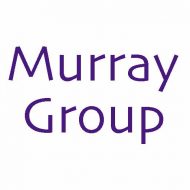LSU Chemistry Professor Secures NIH Grant for Single Cell Analysis Research
LSU Research News
Grant is one of 15 high risk, high impact projects funded nationally
Kermit Murray, LSU professor of chemistry, was awarded $350,844 to develop new methods for single cell analysis. The goal of Murray’s project, entitled, Nanoscale Laser Ablation Capture Mass Spectrometry for Single Cell Proteomics, is to create nanometer scale sampling for mass spectrometry using near-field optics and laser ablation.
“An ensemble of cells does not give us a detailed look at cells,” said Murray. “You may have 100 cells and only a few of them will be in a particular disease state. The use of mass spectrometry will give us a high-resolution view of cells at a sub-cellular level.”
Single cell analysis emerged as an important field of research after new technologies with improved sensitivity made it possible to measure cell-to-cell differences in living organisms and correlate the variation with changes in biological function and disease.
Murray’s research was one of only 15 high-risk/high-impact projects funded nationally to develop new tools to enhance measurement parameters such as sensitivity, selectivity, spatiotemporal resolution, scalability and/or non-destructive measures that preserve the integrity of the cell. The new tools will also improve capabilities for the simultaneous measurement of multiple molecular components, such as genes and cells, within a single cell.
Advancements in single cell analysis will allow personalized health care at the cellular level. Research could lead to the development of techniques to identify genomic lesions in individual cancer cells, which would improve the early detection of rare tumor cells, allow better monitoring of circulating tumor cells and guide chemotherapy treatments.
“This was an extremely competitive grant program. I was really surprised that we scored as well as we did,” said Murray. “It is a very prestigious award and I am glad to bring such quality research to LSU and the state of Louisiana.”
The Single Cell Analysis Program is funded through the Common Fund, and managed by the NIH Office of the Director in partnership with the National Institute of Biomedical Imaging and Biotechnology, or NIBIB, and National Institute of Mental Health, or NIMH, both part of NIH.
The NIH Common Fund encourages collaboration and supports a series of exceptionally high impact, trans-NIH programs. Common Fund programs are designed to pursue major opportunities and gaps in biomedical research that no single NIH Institute could tackle alone, but that the agency as a whole can address to make the biggest impact possible on the progress of medical research. Additional information about the NIH Common Fund can be found at http://commonfund.nih.gov.
NIBIB’s mission is to support multidisciplinary research and research training at the crossroads of engineering and the biological and physical sciences. NIBIB supports emerging technology research and development within its internal laboratories and through grants, collaborations, and training. More information is available at the NIBIB website: http://www.nibib.nih.gov/.
The mission of NIMH is to transform the understanding and treatment of mental illnesses through basic and clinical research, paving the way for prevention, recovery and cure. More information is available at the NIMH Web site, http://www.nimh.nih.gov.
About the National Institutes of Health:
NIH, the nation’s medical research agency, includes 27 Institutes and Centers and is a component of the U.S. Department of Health and Human Services. NIH is the primary federal agency conducting and supporting basic, clinical, and translational medical research, and is investigating the causes, treatments, and cures for both common and rare diseases. For more information about NIH and its programs, visit http://www.nih.gov/.
